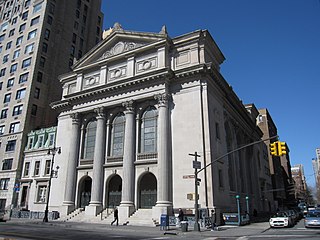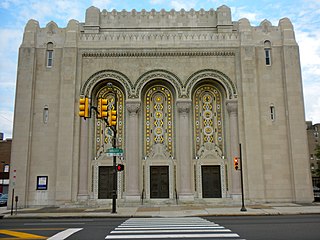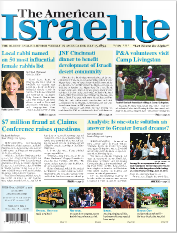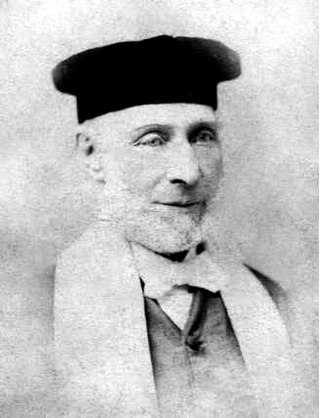
Reform Judaism, also known as Liberal Judaism or Progressive Judaism, is a major Jewish denomination that emphasizes the evolving nature of Judaism, the superiority of its ethical aspects to its ceremonial ones, and belief in a continuous revelation which is closely intertwined with human reason and not limited to the theophany at Mount Sinai. A highly liberal strand of Judaism, it is characterized by little stress on ritual and personal observance, regarding Jewish law as non-binding and the individual Jew as autonomous, and by a great openness to external influences and progressive values.
The Union for Reform Judaism (URJ), known as the Union of American Hebrew Congregations (UAHC) until 2003, founded in 1873 by Rabbi Isaac Mayer Wise, is the congregational arm of Reform Judaism in North America. The other two arms established by Rabbi Wise are the Hebrew Union College-Jewish Institute of Religion and the Central Conference of American Rabbis. The current president of the URJ is Rabbi Rick Jacobs.
African-American Jews are people who are both African American and Jewish. African-American Jews may be either Jewish from birth or converts to Judaism. Many African-American Jews are of mixed heritage, having both non-Jewish African-American and non-Black Jewish ancestors. Many African-American Jews identify as Jews of color, but some do not. Black Jews from Africa, such as the Beta Israel from Ethiopia, may or may not identify as African-American Jews.

Isaac Mayer Wise was an American Reform rabbi, editor, and author. At his death he was called "the foremost rabbi in America".

Reform Judaism, formally the Movement for Reform Judaism (MRJ) and known as Reform Synagogues of Great Britain until 2005, is one of the two World Union for Progressive Judaism–affiliated denominations in the United Kingdom. Reform is relatively traditional in comparison with its smaller counterpart, Liberal Judaism, though it does not regard Jewish law as binding. As of 2010, it was the second-largest Jewish religious group in the United Kingdom, with 19.4% of synagogue-member households. On 17 April 2023, Reform Judaism and Liberal Judaism announced their intention to merge as one single unified progressive Jewish movement. The new movement, which may be called Progressive Judaism, will represent about 30% of British Jewry who are affiliated to synagogues.

The history of the Jews in Cincinnati occupies a prominent place in the development of Jewish secular and religious life in the United States. Cincinnati is not only the oldest Jewish community west of the Allegheny Mountains but has also been an institutional center of American Reform Judaism for more than a century. The Israelite, the oldest American Jewish newspaper still (2019) being published, began publication in Cincinnati in 1854.
Bertram Wallace Korn, Sr. was an American historian and rabbi, who served in the United States Navy Chaplain Corps during World War II. Serving with the US Naval Reserve after the war, in 1975, he was promoted to Rear Admiral in the Chaplain Corps, the first Jewish chaplain to receive flag rank in any of the United States armed forces.

The Congregation Shearith Israel, often called The Spanish and Portuguese Synagogue, is an Orthodox Jewish synagogue located at 2 West 70th Street, at Central Park West, on the Upper West Side of Manhattan in New York City, New York, United States.

Joseph Krauskopf was a prominent American Jewish rabbi, author, leader of Reform Judaism, founder of the National Farm School, and long-time (1887–1923) rabbi at Reform Congregation Keneseth Israel (KI), the oldest reform synagogue in Philadelphia which under Krauskopf, became the largest reform congregation in the nation.

Congregation Rodeph Shalom, is an historic Reform Jewish congregation and synagogue located at 615 North Broad Street, Philadelphia, Pennsylvania, in the United States. Established in 1795, it is the oldest Ashkenazic synagogue in the Western Hemisphere. It is noted historically for its leadership of the Reform movement among American Hebrew congregations, for its spiritual influence upon international Jewry, and for its unique 1927 Byzantine and Moorish Revival synagogue building, with Art Deco finishes, on North Broad Street, listed on the National Register of Historic Places since 2007.

The American Israelite is an English-language Jewish newspaper published weekly in Cincinnati, Ohio. Founded in 1854 as The Israelite and assuming its present name in 1874, it is the longest-running English-language Jewish newspaper still published in the United States and the second longest-running Jewish newspaper in the world, after the London-based Jewish Chronicle.
Isaac Landman was an American Reform rabbi, author and anti-Zionist activist. He was editor of the ten volume Universal Jewish Encyclopedia.
James Gutheim Heller was an American rabbi and composer.

Jewish Americans have served in the United States armed forces dating back to before the colonial era, when Jews had served in militias of the Thirteen Colonies. Jewish military personnel have served in all branches of the armed forces and in every major armed conflict to which the United States has been involved. According to the U.S. Department of Defense, as of 2006 there were currently 3,973 known Jewish servicemen and servicewomen on active duty.
The so-called "Trefa Banquet" was an elegant and sumptuous dinner held on July 11, 1883, at the Highland House restaurant in Cincinnati, Ohio. Held in honor of the first graduating class of Hebrew Union College and the delegates to the eighth annual meeting of the Union of American Hebrew Congregations, it offended a number of guests by featuring non-kosher (treyf) foods. It became symbolic of the growing divide within American Reform Judaism, which would eventually lead to the birth of Conservative Judaism.

Lance Jonathan Sussman is a historian of American Jewish History, college professor, Chair of the Board of Governors of Gratz College, Melrose Park, PA and until summer 2022 the senior rabbi, now emeritus, at Reform Congregation Keneseth Israel (KI) located in Elkins Park, PA. He is the author of books and articles including: Isaac Leeser and the Making of American Judaism (1995) and Sharing Sacred Moments (1999), and a co-editor of Reform Judaism in America: A Biographical Dictionary and Sourcebook (1993) and New Essays in American Jewish History (2009). Since 2010 he has also published articles on Judaism and art.

Reform Congregation Keneseth Israel, abbreviated as KI, is a Reform Jewish congregation and synagogue located at 8339 Old York Road, Elkins Park, just outside the city of Philadelphia, Pennsylvania, in the United States. Founded in Philadelphia in 1847, it is the sixth oldest Reform congregation in the United States, and, by 1900, it was one of the largest Reform congregations in the United States. The synagogue was at a number of locations in the city before building a large structure on North Broad Street in 1891, until 1956 when it moved north of the city to suburban Elkins Park.
The history of the Jews in Guam, a territory of the United States in the western Pacific Ocean, dates back to at least 1899. A high point in Jewish activity in Guam was during the time of World War II. Jews have continued to live there since, although as a small presence. As of 2009, there are approximately 150 Jews in Guam, of which about a third are religiously active.
Arnold Fischel (1830–1894) was a politically influential 19th-century Dutch rabbi. He was instrumental in getting the United States military chaplaincy law changed to allow for inclusion of Jewish chaplains in 1862.

Jacob Frankel was a German-born rabbi who became the first official Jewish military chaplain of the United States, during the American Civil War.











